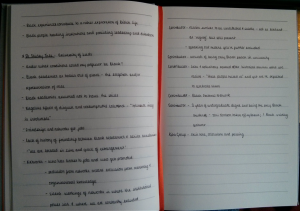
A couple of weeks ago I attended a panel discussion at UCL called, simply, “Why Isn’t My Professor Black?”. Race in academia and the experience of being a BME academic is something I’m keenly interested in: I’ve written about UCU’s report on race, about intersectionality and some reflections on intersectional experiences in teaching and learning, and the effort one expends entering spaces where I am a research subject rather than a researcher and activist in my own right.
The statistics are shocking: of the 18,550 professors in the UK, only 85 of these are Black – and only 17 of the 85 are women. This panel brought together six Black academics to not only discuss why there are so few Black professors, but to imagine the conditions where Black academics could thrive.
The six academics brought together for the panel were:
Nathan Edward Richards
Deborah Gabriel
Dr Nathaniel Adam Tobias Coleman
Dr Lisa Amanda Palmer
Dr William Ackah
Dr Shirley Tate
You can watch the full panel on youtube, read the Storify of tweets here and there’s a summary of the event and each speaker’s approach on this blog. Dr Nathaniel Adam Tobias Coleman‘s talk, “Philosophy is dead white – and dead wrong” is online here.
I’ve found a couple of blog responses but would love to add more – if you’ve written something, please let me know in the comments. Yewande Okuleye has a series of posts focusing on contents of the panel discussion, responses from attendees and participants, and her reflections. Leona Nicole Black also has some really interesting reflections on the event.
Predictably, I’m interested in the context informing this. Currently open in my tabs is a Guardian article reporting that only three black applicants win places to train as history teachers, an Irish Times article on the everyday reality of gender imbalance at professor level at third level, a Salon article about why white guys don’t (have to) get it and that is why dominate TV, a NYT piece on racial microaggressions in university, a Guardian article on why many academics are on short-term contracts for years, Nadine Muller’s collection of posts on academia and mental health, research showing that Black and Minority Ethnic communities are faced with double the levels of discrimination and PhD(isabled). As intersectional analyses show us, these different issues interact and compound each other: to be BME with poor mental health is not to experience two separate issues but instead to experience intertwining, inextricable issues that mean that such an experience is different from that of a white person with mental health issues or a BME person without them.
If “straight white male” is the lowest difficulty setting there is, Black and minority ethnic academics – particularly women, particularly those with mental health or disability issues, particularly LGBQ people, particularly trans* people, and particularly those whose identities encompass all of these things – are playing the academic game on a much harder setting. And it shouldn’t be this way.
I could make an argument in terms of academic labour – if the academy loses us through neglect and hostility and lack of support, it loses our perspectives. It loses our critiques, it loses our intellectual gifts, it loses what we can bring to the university in terms of funding and prestige and league table rankings. It loses our abilities to engage with and mentor students, which will no doubt be reflected in the National Student Survey.
However, I am more interested in the damage it does to those in this system – the students and scholars who must struggle in ways not expected of anyone else, and who, when we raise the issue, are told that academia isn’t for everyone, and maybe we would be happier doing something else? What does it mean to work in such an environment, and what is it doing to us? What does our labour mean when it is produced in these conditions?
